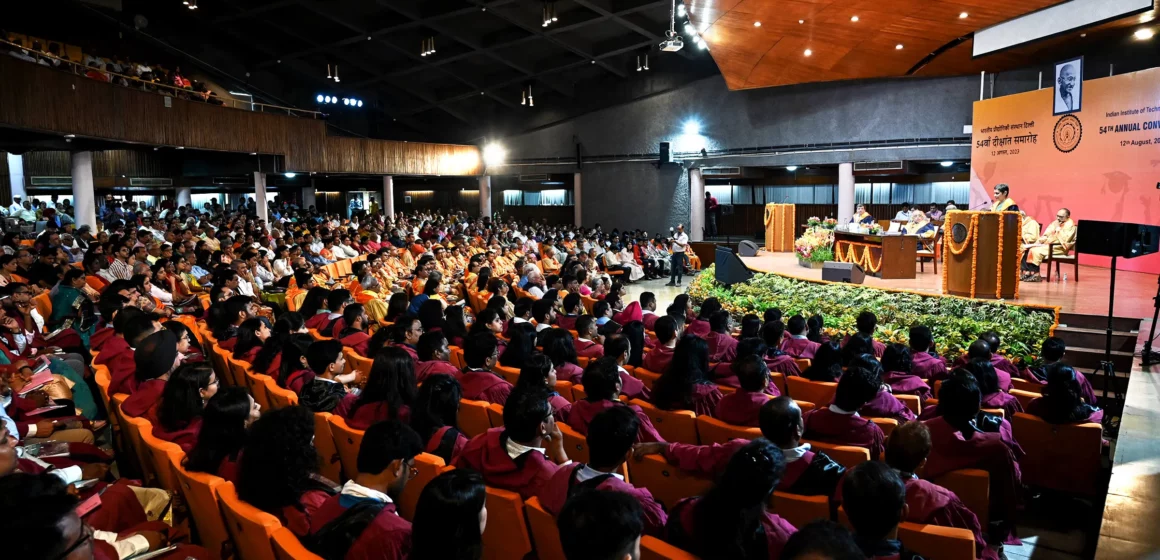In 2024, Computer Science and Engineering (CSE) remains the top choice among students applying to IITs, as per the Joint Implementation Committee (JIC) report. With over 4 lakh applications, CSE has seen a 12% rise from last year. Other popular branches include Mechanical, Electrical, and Civil Engineering. IIT Bombay leads in CSE demand, with 25,481 choices recorded this year.
Blog:
Engineering continues to be one of the most sought-after fields of study in India, with the Indian Institutes of Technology (IITs) leading the way in terms of reputation and academic excellence. Every year, students across the country compete fiercely for a chance to secure a seat in these prestigious institutions. The Joint Implementation Committee (JIC) report 2024 reveals the latest trends in students’ branch preferences, showing that Computer Science and Engineering (CSE) has once again emerged as the top choice for aspirants.
Computer Science and Engineering (CSE): The Most Popular Branch
In 2024, a record 4,30,238 students applied for Computer Science and Engineering (CSE), making it the most popular engineering branch in IITs by a significant margin. This represents a 12% increase from last year’s 3,82,296 applicants, reflecting the growing demand for skills in technology and software development. This surge is not surprising, given the rising influence of digital technologies in all sectors of the economy.
CSE has consistently been the leading choice for IIT aspirants due to its career prospects in high-demand fields like software engineering, data science, artificial intelligence, and cybersecurity. As industries worldwide continue to embrace automation and data-driven decision-making, the importance of computer science expertise has become more pronounced.
The 2024 report indicates that this upward trend has been steady over recent years, with 3,99,642 students applying for CSE in 2022 and 3,86,360 in 2021. The only other year when the number of applicants for CSE surpassed 4 lakh was in 2020.
Mechanical, Electrical, and Civil Engineering: Evergreen Choices
While CSE remains the dominant choice, the traditional engineering branches of Mechanical Engineering, Electrical Engineering, and Civil Engineering continue to attract a substantial number of students. These branches have long been integral to India’s industrial growth, and they provide a solid foundation for careers in core engineering sectors.
Mechanical Engineering is still popular among students interested in manufacturing, robotics, and mechanical systems design. With applications in diverse industries such as automotive, aerospace, and energy, it remains a strong choice for students seeking stability and innovation.
Similarly, Electrical Engineering offers students a deep understanding of electronics, power systems, and communication technologies, which are vital to both infrastructure development and modern technology solutions. Civil Engineering maintains its importance for students focused on construction, urban development, and environmental sustainability.
These branches, though not experiencing the same explosive growth as CSE, still hold immense value in the engineering landscape. The balance between technology-driven disciplines and traditional engineering fields ensures that IITs cater to a wide range of interests and career aspirations.
IIT Bombay: The Top Destination for CSE Aspirants
Among the various IITs, IIT Bombay continues to be the most sought-after institution for students aiming to pursue Computer Science and Engineering (CSE). The report notes that 25,481 students listed IIT Bombay as their top choice for CSE, making it the highest in the country.
IIT Bombay’s reputation for excellence in computer science education is well-established. The institute offers state-of-the-art research facilities, a rigorous academic curriculum, and close ties to the tech industry, especially given its proximity to India’s financial capital, Mumbai. These factors make it an attractive destination for students looking to build successful careers in technology.
For many students, IIT Bombay represents the perfect combination of academic excellence, industry exposure, and career opportunities. This is reflected in its consistently high demand, particularly for CSE, which remains one of the most competitive courses in the entire IIT system.
Growing Demand for Technology-Focused Engineering Disciplines
The data from the Joint Implementation Committee (JIC) report 2024 showcases a growing trend: the increasing demand for technology-related branches in engineering. As the world becomes more digital, the appeal of fields like CSE is expected to continue growing. This year’s 12% jump in CSE applicants underscores the impact of digital transformation on education and career choices.
However, the continuing popularity of Mechanical Engineering, Electrical Engineering, and Civil Engineering proves that core engineering branches are still highly relevant. These fields form the backbone of infrastructural and industrial development, contributing to critical sectors such as energy, transportation, and construction.
The steady interest in traditional engineering branches reflects students’ recognition of the enduring value of foundational engineering skills. Whether it’s building software or designing complex mechanical systems, the demand for high-quality engineering talent remains high across the board.
The JIC report for 2024 highlights Computer Science and Engineering (CSE) as the clear favorite among IIT aspirants, with Mechanical Engineering, Electrical Engineering, and Civil Engineering also retaining their importance. IIT Bombay stands out as the top choice for students pursuing CSE, further cementing its status as a leader in technology education.
As India’s engineering landscape evolves, students are increasingly gravitating toward technology-focused disciplines. However, the continued popularity of traditional engineering branches underscores the versatility of the IIT system in meeting the demands of both modern and foundational engineering fields.


Leave a Reply